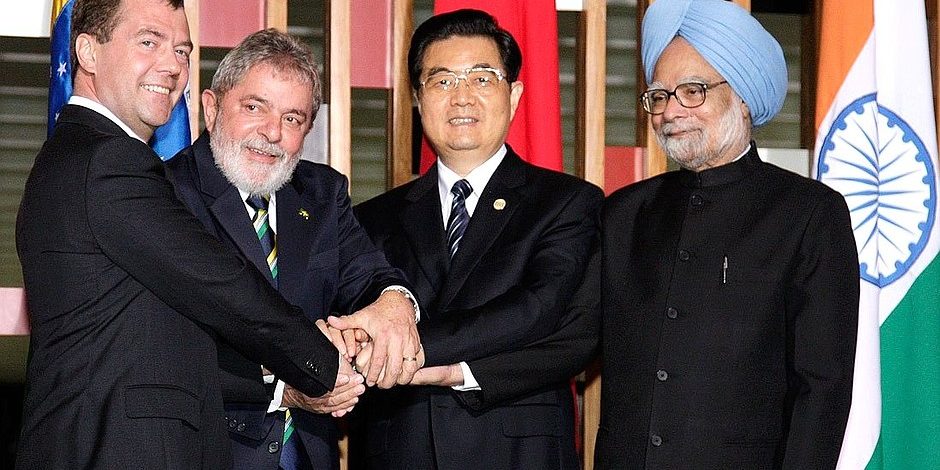In a bid to secure access to long-term energy supplies and other raw materials to sustain industralisation and production, China has turned to Africa. A region traditionally characterised by high political and security risks, Africa has enjoyed relatively unrecognized economic growth at an average of about six percent over the last decade. [1] In comparison to other emerging markets, Africa is increasingly attracting business pursuits and investments, particularly from the BRIC countries. Earlier this year, Chinese President Xi Jinping announced a $60 billion USD loan and aid package for Africa, in addition to the notable $900 billion USD new Silk Road project. [2]
Technology is one trend that has helped catalyse the transformation of Africa into a new investment frontier. Improved internet penetration has provided the right seeds for the rapid expansion of e-commerce in Africa – Africa now has the highest mobile broadband growth rate globally. Take the case of Nigeria’s largest e-commerce site, Konga. Established in 2012, it has emerged as the top start-up and e-commerce provider in Nigeria and was recognized by Google as a model of innovation. [3] Konga’s projects of KongaPay, Konga Express, Konga Marketplace, and Self-Fulfill Model exemplify Africa’s move away from being a ‘risky’ investment to a growing market known for its advancements in technological infrastructure.
Pan-African investment funds are also another source of optimism among investors. Apart from China, nearly $3 billion USD in private equity have been raised outside of the BRIC countries this year for Africa. The fact that global emerging market funds are deploying close to ten percent of their portfolios towards Africa thoroughly accounts for the growing appetite in investment opportunities in African countries. London-based fund Blakeney Management has moved towards investing on countries who have managed to overcome long-term violent conflict and corruption, such as Angola, Mozambique and Ethiopia. [2]
On the institutional front, the Compact with Africa (CWA) works with the G-20 countries to boost private investment in Africa to stem the financial gap, but also to unlock the continent’s economic potential and address issues of unemployment and mass migration. [4] A pragmatic approach to convene investors and international organisations with a lasting impact on development, the CWA serves as an enabling platform for African countries to pursue the objectives in the African Union’s Agenda 2063 and the United Nations’ Post-2015 Agenda. [5]
Externalities such as drought and uncertainty regarding American trade policy decisions also risk African economic development particularly South Africa. Africa is a unique continent, comprising over fifty markets markedly different from one another in terms of cultural, political and economic characteristics. Each Africa country needs to manage and diversify its economy to prevent over-reliance on a single commodity. At the same time, alternative sources of revenue must be developed – Cameroon is already investing in IT infrastructure. [6] This will ensure that African economic prosperity can be achieved in a more sustainable manner with an efficient global supply network already in place. A trust-generating ecosystem and regulatory environment supportive of businesses is also essential for Africa to smoothly transit into its next stage of economic development as domestic stability and connectivity improves.
The blistering pace of urbanization and youth bulge is another factor driving economic growth but simultaneously creating formidable challenges for Africa. About seventy percent of the continent is younger than thirty and this tends to be higher in more fragile cities. [7] Africa’s urban advantage is meant to be seized, not degraded into a state of urban fragility. The concept of urban resilience requires dynamicity of both a city’s institutions and its residents.
Looking ahead, policy-makers in Africa must make a firm commitment to institutional innovations to reduce the gaps between policy goals and implementation outcomes. A political environment of populism will not enable Africa to reach the peak of its economic potential. Furthermore, instability as a result of violent extremism in al-Shabab of Somalia, Boko Haram of Nigeria, and al-Qaeda and ISIS of North Africa can only be addressed through long-term policy transformations such as boosting education and employment.
Essentially, what Africa really needs is an ongoing conversation involving such stakeholders on the critical innovations needed in economic policy, institutional design and the state of its cities. Being a continent spanning the size of the USA, Europe, China, India, and Japan combined, it would be best to remain cautious on whether Africa can truly overtake the BRIC economies.
[1] Fidelity International, (2009), Emerging markets – Africa
https://www.fidelityinternational.com/ireland/news-insight/emerging-markets-insight/emerging-markets-africa.page?smid=gvd38y28
[2] David McDonald, (JUL 2017), Is Africa The Next Emerging Market?
https://www.forbes.com/sites/quora/2017/07/13/is-africa-the-next-emerging-market/#643f54fd576f
[3] Simba Musarurwa, The Paradigm Shift: The Future Role of Technology Emerging Markets
https://by.dialexa.com/the-paradigm-shift-the-future-role-of-emerging-markets-in-technology
[4] Brahima Sangafowa Coulibaly, (JUL 2017), Notes from the G-20 high-level conference on the Compact with Africa
[5] Landry Signé, (OCT 2017), Innovate or fail: The options open to Africa for implementing the SDGs and Agenda 2063
[6] Afrikonomics, (JUN 2017), Africa versus emerging markets: who is leading the race?
http://www.afrikonomics.com/africa-versus-emerging-markets-the-race/
[7] Robert Muggah and David Kilcullen, (MAY 2016), These are Africa’s fastest-growing cities – and they’ll make or break the continent
https://www.weforum.org/agenda/2016/05/africa-biggest-cities-fragility
[8] Kimberly Adams and Chole Marie Rivera, (DEC 2016), Why emerging markets in Africa matter to the U.S.
https://www.marketplace.org/2016/12/23/world/why-emerging-markets-africa-should-matter-americans
Edited by Luke Doyle (Bsc Economics and Economics History)






